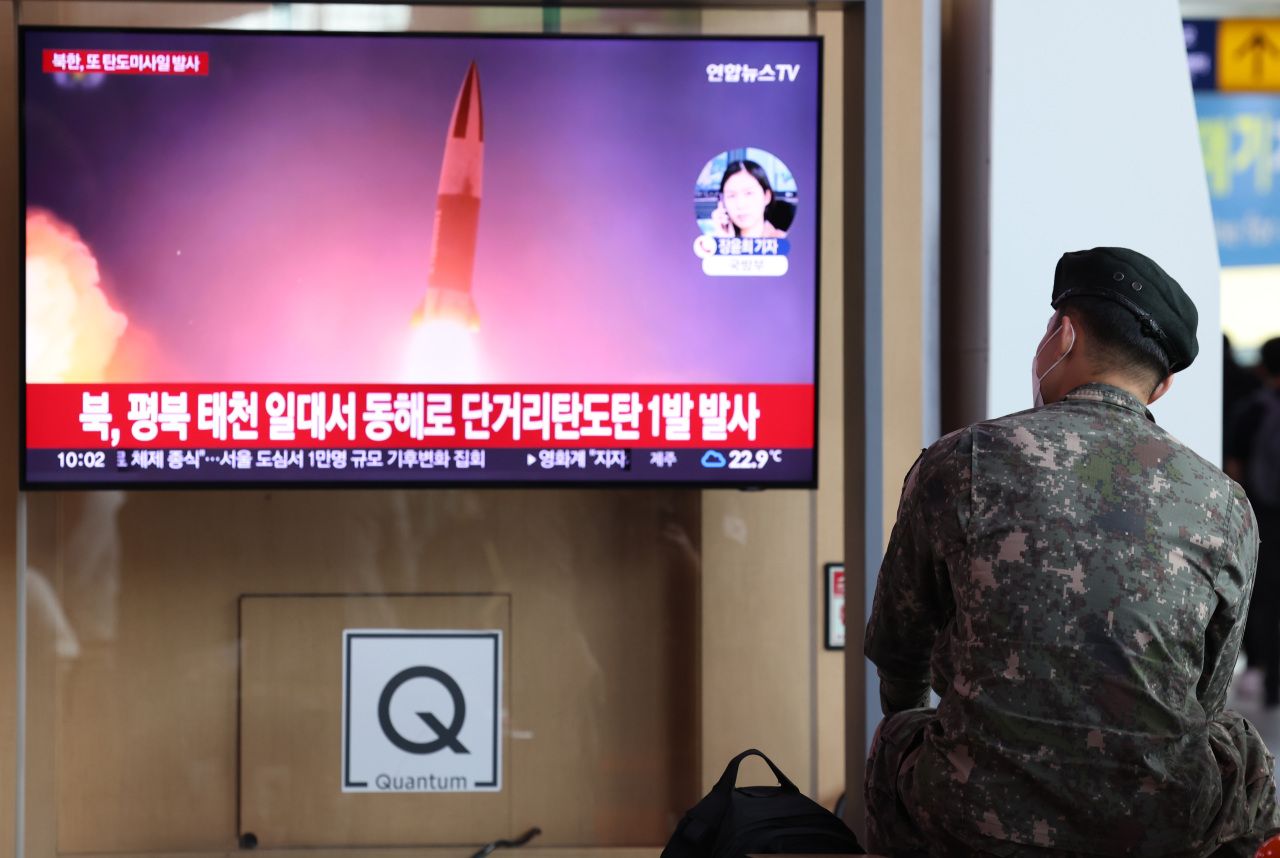N. Korea Fires Suspected Missile Ahead of US Drills, Harris Visit
North Korea reportedly fired a short-range ballistic missile toward its eastern territorial waters on Sunday ahead of military drills by South Korean and US forces and a visit by US Vice Pres. Kamala Harris.

Facts
- North Korea reportedly fired a short-range ballistic missile toward its eastern territorial waters on Sunday ahead of military drills by South Korean and US forces and a visit by US Vice Pres. Kamala Harris.
- According to the South Korean military, which called the test a “serious provocation,” the missile was launched from the Taechon area in North Korea’s North Pyongan province. It flew about 600 km (373 miles) at a speed of about Mach 5, reaching an altitude of about 60 km (37 miles).
- The launch, condemned by the South Korean Defense Ministry as a “clear violation” of UN resolutions, was reportedly Pyongyang’s first ballistic missile test since June. The North is said to have conducted 17 weapons tests with ballistic missiles and two with cruise missiles this year.
- This came as the US nuclear aircraft carrier USS Ronald Reagan arrived in Busan, South Korea, for the first time in five years. The US vessel and South Korean warships are expected to conduct joint military exercises to bolster military readiness.
- On Sept. 8, Kim Jong Un announced that the North would never give up nuclear weapons to counter an alleged US pressure campaign. Further, Pyongyang passed a law authorizing its military to “automatically” launch a nuclear strike should the North Korean leadership be attacked.
- Meanwhile, South Korea claimed that Pyongyang may be preparing to test a submarine-launched ballistic missile as US Vice Pres. Kamala Harris is soon expected to visit South Korea as part of her Asia tour.
Sources: NPR Online News, Reuters, New York Times, Navy Times, Military Times, and Japan Times.
Narratives
- Establishment-critical narrative, as provided by Hani. The policy of military “deterrence” against Pyongyang leads only leads to frustrating countermeasures. It’s not helpful to make the complete denuclearization of North Korea a precondition for improving bilateral relations. Only when peaceful coexistence between North and South Korea is nurtured will Pyongyang reconsider its nuclear stance. This is basic common sense.
- Pro-establishment narrative, as provided by Mad About Politics. Now is the time for Washington, Seoul, and the international community to make it clear to Pyongyang that serious consequences will follow if North Korea’s provocations continue. The global community should retain the right to launch preemptive strikes should a North Korean attack be imminent.






